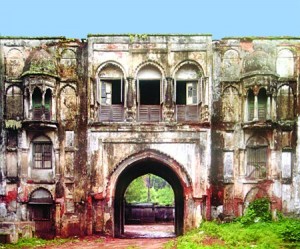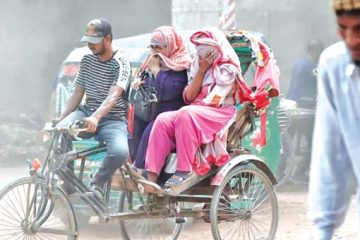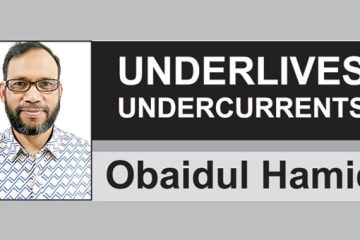From WeeklyHoliday
Abdur Rahman Khan
 A nation cannot progress without having a clear conviction and pride in her past glories. A citizen develops the feeling of esteem for his or her heritage through learning about the country’s historical and cultural legacy.
A nation cannot progress without having a clear conviction and pride in her past glories. A citizen develops the feeling of esteem for his or her heritage through learning about the country’s historical and cultural legacy.
This is why the Asiatic Society of Bangladesh (ASB) have planned a three-year programme for the celebration of 400 years of Dhaka city as the capital, says Professor Dr Sharif uddin Ahmed, Chief Coordinator and Chief Editor of the celebration programme.
Launched in September 2008, the three-year programme will continue till September 2011 involving more than 200 researchers and historians to produce scholarly books, organise seminars on various aspects of Dhaka, its past and the future.
“The most important item of our activities is the restoration and conservation of the Nimtali Deuri, a famous historical relic lying within the precincts of the ASB at Nimtoli in the city,” Dr Ahmed told the Holiday.
Nimtoli Deuri or the Nimtoli palace gate is one of the most important Mughal historical buildings used by the Nawab-e- Nazim of Dhaka. The Deuri with its grand archway used to house the guard rooms and the upper chamber music room wherefrom the musicians used to play classical instrumental music to welcome or bid farewell to the important guests visiting the palace.
“We have a plan to turn the Deuri into a museum decorated with the paintings, artefacts and selective books representing the historical evidences of those days,” said Ahmed adding that there will be provision for video presentation of the virtual place.
Dhaka as the capital city with some breaks has made a long journey for four hundred years leaving behind many achievements and memories. “It is these achievements and memories that we want to review and dwell upon its present day multifarious urban development and future prospects”, says the chief coordinator adding that hey have taken steps to collect the historical reference materials from the archives in India, Pakistan, Iran, United Kingdom, France, Netherlands, and the USA.
Jahangirnagar in 1608
In absence of concrete historical evidence, there are different views on the actual date of establishing Dhaka as the capital of Subah Bangla. Professor Dr A H Dani in his book Dhaka: A Record of Its Changing Fortunes (1962) has asserted that Dhaka was chosen as the capital of the province in 1608. On the other hand, Professor Dr. A. Karim in his book Dhaka: the Mughal Capital (1964) has concluded that Dhaka was made the capital of the province by the new governor Islam Khan Chisti in 1610.
The Asiatic Society’s view is that though Islam Khan was appointed Subadar or governor of the province in 1608, he actually arrived in Dhaka in July 1610 and named the city as Jahangirnagar after the name of the Mughal Emperor Jahangir.
The Celebration of 400 years of Capital Dhaka is an occasion to project Dhaka as a historic city and also to promote its economy culture and traditions that would place us as nation to a glorious position among the global community, explained Dr Sharif uddin, a professor of history at Dhaka University and also the Vice-President of the Asiatic Society of Bangladesh.
18 books
During the celebration the ASB has planed to publish a total of 18 scholarly books to highlight the historical past and present-day Dhaka with its various aspects including art, culture, music, industry, food, civic life and the life of womenfolk. There will be a book exclusively on Dhaka in the Liberation War of 1971.
“We will publish a book on women of Dhaka since the women inside the palace had played very important role in the political history of Dhak, they contributed a lot in paintings, music, and handicrafts”, he said. They dominated largely in producing the famous Muslin fabrics, Kasida music and paintings. However, there is not enough record of the activities of women in the urban and palace life, he said.
As a part of the 400 years celebration, the ASB is organising a programme on October 24 this year highlighting Dhaka’s great Moglai and traditional cuisines. The organisers believe that food is a part of civilization that tells about the habit, socio-economic status, health consciousness and the cultural taste of a community. “We will produce a 350-page book on cooking and recipe as traditionally practised by the Dhaka people in the past and present days” said the chief coordinator of the celebration programme. On this occasion there will also be an exhibition of food items, specially representing Dhaka.
Under the celebration programme, the Society has already published two books, the revised edition of the books on Dhaka by Professor A H Dani. Eight more books are in the process of completion. They would be published by December this year. The remaining nine books will come out next year, said Professor Sharif uddin Ahmed.
Photo Caption: Nimtoli Deuri to be renovted and converted into a museum







